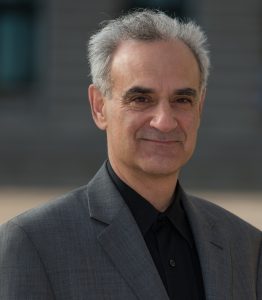The government should bail out families, not the fossil fuel industry
Instead of committing taxpayer funding to toxic industries like oil and gas that harm the public and the planet, the government should prioritize support for working-class families
Originally published on Medium on March 24, 2020.
By Gary Cohen, founder of Health Care Without Harm
This article was produced with support from Wallace Global Fund.

Across the country, thousands of health care workers are putting their lives on the line in the fight against the deadly coronavirus pandemic. This is occurring at a moment when our health care systems are already strained by deepening gaps in both health and wealth inequality.
Just a short time into this pandemic, hospitals are already experiencing shortages of tests, masks, ventilators, swabs and other essential materials to control the burgeoning pandemic and keep their facilities and themselves safe. Our frontline health workers are at risk amidst an inadequate government response and the growing rate of infections.
Additionally, millions of service industry workers who cannot work from home are facing job loss or shortened hours, do not have access to paid sick leave, face crippling losses of income, and often lack the necessary benefits to seek treatment if they do get sick.
Meanwhile, in response to the economic fallout from the pandemic, the U.S. government is considering bailouts to some of the most polluting industries on the planet. President Trump recently proposed bailing out and propping up the oil and gas sector.
Instead of committing taxpayer funding to toxic industries like oil and gas that harm the public and the planet, the government should prioritize support for working-class families. Real people are dying and their families and neighbors need help. Federal funding should go toward preventing human deaths, not propping up the very industry that is the major source of the climate crisis.
These fellow Americans — our overstretched health care workers, supply chain delivery drivers, gig economy workers, and service industry staff — are the ones we must think of first. But we must also be clear about the fact that these negative societal impacts are symptoms of a broader structural problem.
We were facing an existential threat to humanity long before COVID-19: the climate crisis. January 2020 was the hottest January on record. An estimated 50 million acres of Australian bushland burned before our eyes, while an estimated billion animals perished in the fires.
Fossil fuels are not only driving the climate crisis but also have a leading role in contributing to deaths and diseases related to air pollution. Recent studies suggest that nearly nine million people around the world are dying every year because of dirty outdoor air pollution that we cannot even see.
Given this, you might expect us to be funding climate-smart innovations or scaling up solutions that we know are required to prevent an impending catastrophe. Instead, as we saw, the Trump administration’s first policy response to the coronavirus pandemic was to try and bail out the fossil fuel industry — even though we are already subsidizing them. Several years ago, the International Monetary Fund estimated that the subsidies to fossil fuel companies exceeded $5 trillion, with half of those subsidies being indirect costs related to disease-related health care costs. In other words, we have been paying with our health.
Politicians often argue that we can’t afford such “luxuries” as guaranteed housing, food, and health care, but their own actions to bail out special interests show that we can. Instead of floating billions as an economic lifeline to a toxic industry, why can’t we support millions of working families by addressing basic human needs?
Nearly 30 million Americans — just under 1 in 10 — don’t have health insurance. Millions more have deductibles that discourage them from getting tested for the coronavirus. Rather than guaranteeing that everyone in the country is tested at no cost, Congress has gone back and forth about who to include in emergency stop-gap coverage.
The communities that are most vulnerable to the coronavirus — the working class, the poor, and those with preexisting health conditions — are among those who will suffer most from the effects of climate change, too. Too often they lack the safety nets to fall back on and typically live in areas or regions that lack strong underlying health care infrastructure. Many of them are people of color who must also grapple with systemic and structural racism that affects everything from their incomes to their life expectancies. We must do more to support the resilience of these communities as we address this pandemic and prepare for more shocks and disruptions in the future.
The coronavirus pandemic may yet serve as an example of how we leveraged a crisis to scale up our own social safety net and built community resilience — or, if the opportunity is squandered, may join a long list of situations in which the Trump administration put their pet corporate interests ahead of the public good.
***
Gary Cohen has been a pioneer in the environmental health movement for more than 30 years, founding Health Care Without Harm, Practice Greenhealth, and Greenhealth Exchange. He serves on several boards, including Health Leads and Coming Clean. A MacArthur Fellow, Cohen has been recognized by the White House, the U.S. Environmental Protection Agency, the Skoll Foundation, the Huffington Post, and many more for his efforts to transform the health sector to become environmentally sustainable.
